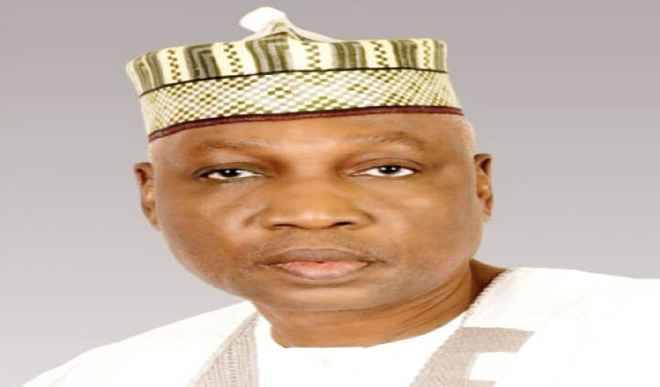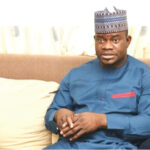
In recent times, domestic airlines in the country under the umbrella of the Airline Operators of Nigeria (AON), have been grumbling over multiple charges. The singsong has equally shifted to the foreign airlines, which representatives recently said the Murtala Muhammed International Airport (MMIA), Lagos is the most expensive in the world, Daily Trust on Sunday reports.
Is the Murtala Muhammed Airport the most expensive in the world? This is the poser raised by foreign airlines operating in Nigeria under the aegis of the Association of Foreign Airlines and Representatives in Nigeria (AFRAN). The claim, which is generating disquiet in the aviation sector, has further brought to the fore, the seemingly unending cries of multiple charges by the domestic airlines.
With the foreign operators joining the fray, stakeholders believe the controversy over charges would continue to rear its ugly head in the aviation sector, more so as the domestic carriers see the claim by their foreign counterparts as untrue.
The president of AFARN, Kingsley Nwokoma, in an interview with our correspondent, insisted that Lagos airport was the most expensive in the world. He said multiple charges had discouraged some foreign airlines from operating in Nigeria. He stressed that the infrastructure at the airports were not commensurate with the charges.
“The operating environment here is expensive, even when compared to Accra. There is a lot of multiple charges that need to be looked at and reviewed. I believe you have to take it one step at a time. If you take it one step and the charges are friendly, more people will come. But if the charges are not friendly, people will look into another clime.
“We have the population, which is good, but it also has to do with what you have in your pocket. Airport facilities generally should be upgraded. There is a lot to be done. It has to be systematic. We need to improve infrastructure, we need to make sure that the multiple charges are no more there.
“If the airlines are paying so much here on, maybe landing, parking and all associated fares, that means it would go back to the charges. So we need to look at all the multiple charges, we need to review all our charges, we need to improve infrastructure, we need to look at other countries and try to be close to the world standard,” he said.
Daily Trust on Sunday reports that foreign airlines operating in Nigeria pay charges for landing, parking, passenger service charge (PSC) usually built on airline tickets, among others. While the details of the charges are sketchy, authorities, however, believe the claim by foreign airlines is fraught with misinformation.
Mrs. Henrietta Yakubu, general manager, Public Affairs of the Federal Airports Authority of Nigeria (FAAN), said the charges collected from the airlines were in line with the recommended threshold by the International Air Transport Association (IATA) and the International Civil Aviation Organisation (ICAO). She said the charges could be high to foreign carriers because of the exchange rate.
“If you compare our naira to dollars or pounds, you expect the naira to be high. These are simple arithmetic. If somebody is paying one dollar or pound in the US or UK, you know how much he would pay in Nigeria? There are no charges we have that did not comply with IATA and ICAO standards. So I am not sure our charges are high; it is just the exchange rate.”
The director of Virgin Atlantic Cargo in Nigeria, Mr. Philip Wetherall said airlines paid N5,000 per kilo on exported goods and N7,000 per kilo of imported goods to FAAN, in addition to other charges. He stressed the need for harmonisation of charges and downward review to attract more investment into the country.
While the list of charges collected from foreign airlines are not in the public domain, the local operators recently claimed that they paid 32 charges to various government agencies.
The charges, which are said to be intertwined for both domestic and international airlines, are divided into aeronautic and non-aeronautic revenues, and are added to charges collected from passengers as air tickets.
Domestic airlines, on the average, pay about 35per cent to 40per cent of a ticket cost as taxes and charges that come under the guise of statutory levies, in addition to other charges. These include 5per cent ticket sales charge, 5per cent cargo sales charge, 5per cent Value Added Tax (VAT), passenger service charge, charter sales charge, aircraft inspection fees, simulator inspection fees, landing charges, parking charges, terminal navigational charge, en route charge, fuel surcharge, airport space rent, electricity charges, and apron pass, ramp access charges, ODC and a newly imposed registration fee, all of which are paid to government agencies.
The breakdown of aeronautic charges included aircraft inspection, which is tickets and Duty Tour Allowance (DTA) paid to the coffers of the NCAA. The DTA depends on the country the aircraft is being inspected, but a source said airlines paid at least $10, 000 to the agency for each inspection of its aircraft.
Also, landing charges are divided into two: day and night. During the day, airlines pay N25 per kilogram of the aircraft weight while they are charged N37.5 per kilogram of the aircraft at night. The FAAN collects the charge from airlines.
Also, the FAAN collects N315 per weight of aircraft after 30 hours from airlines as parking charge while the agency also collects between $40 and $50 from airlines for using the Avio Bridge.
For en-route charge, the FAAN charges $70 from airlines on international routes while it collects N2,000 for carriers on domestic route.
Indigenous airlines also pay to NAMA $75 as a charge for over-flight while it equally collects $195 from airlines that operate international or regional flights outside the country, while N6,000 is remitted by indigenous airline operators for the same terminal charge.
All along, it was learnt that foreign airlines were not paying VAT, which the government recently abolished for the domestic carriers after ceaseless outcry.
In addition, the foreign carriers also pay ground handling companies for ramp services to either the Nigeria Aviation Handling Company (NAHCO) or the Skyway Aviation Handling Company (SAHCOL).
The acting managing director of SAHCOL, Mr. Basil Agborumi, said while air fares had increased in recent times, the handling rates had not changed for years. He said, “The airlines have consistently changed their fares, but we have not done that for so many years. We still operate with the same tariff we have been operating, up to the time naira was N165 to a dollar. Regrettably, today, the rate has grown more than double. What it costs us to buy a ground handling equipment today has grown astronomically. It is not that the cost has changed, but whereby we were spending one naira to buy a ground handling equipment before, by the time we source for foreign exchange, you will see that it has gone to about N3. That’s the situation we have found ourselves. But the airlines still pay the same amount of money they have been paying us even before then.”
An airline chief who spoke with our correspondent on condition of anonymity also stressed that foreign airlines could not claim to be paying more than their local counterparts. “Do you know that they have stopped paying Bilateral Air Service Agreement (BASA) royalties? Is anyone talking about that?’’ he asked.
Virtually all the domestic carriers flying to regional and international routes have complained bitterly about exorbitant charges. The chairman of Air Peace, Allen Onyema recently threatened to sue Togo for allegedly imposing crazy bills on the airline in an attempt to frustrate the planned flight services to the country, with a view to protecting her airline, Asky. This, he said, was against the spirit and letter of BASA.
More often than not, the local carriers believe the foreign airlines are treated like kings when it comes to charges. Med-View Airline managing director, Alhaji Muneer Bankole, recently disclosed that it paid £5,000 per landing to Menzies Aviation, providing ground handling service to the airline at Gatwick International Airport, UK. According to him, in about two years of operating to the UK, “We have done a transaction of £1.5 million with them. We have paid Gatwick Authority £1.45 million.”
From the regulatory point of view, the Nigeria Civil Aviation Authority (NCAA) insists that the claim by the foreign airlines is not true. “I can tell you that it is not true,” Sam Adurogboye, spokesman of the authority said.
Speaking with our correspondent, an aviation analyst, Group Capt Ojikutu challenged the foreign carriers to publish the list of charges they pay. “Where are the comparisons? What are the charges in Lagos and what are the charges in London, New York, Johannesburg, Cairo, Morocco? When these are made known, then we can compare. Are we looking at aircraft landing and parking, ground handling services or air navigational and en route charges or passengers services charges? When the IATA asked African countries to reduce charges because they are high, it should give comparison costs outside Africa.
“I think this noise is coming from the IATA to support its calls that African airlines do not need to do intercontinental but continental flights. The calls are only for the foreign airlines that form 80per cent of intercontinental flights to have their operational costs to Africa reduced. That also explains why the IATA is against airport concessions; what does not obtain in Europe and US where most of these airlines come from; where most airports like Heathrow, Gatwick, New York, etc are owned by individuals or metropolitan cities where they are located.
My take is: let those shouting of high cost of airport services in Lagos give us figures from other airports in Africa, Europe and US to compare.”




